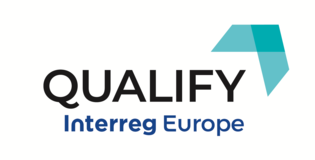The third internal meeting in the Interreg Europe QUALIFY project ‘Quality and authenticity standards to promote the competitiveness of SMEs in the agri-food industry’ was held on Wednesday 12 May.
The project is currently in its fourth six-month period and is focussing on promotion of food authenticity and other quality attributes as value for consumers, which is one of the key goals, together with the prevention of food fraud and quality self-monitoring.
The QUALIFY project is co-financed from ERDF funds, hence a review of instruments that manage this and other funds, such as the EAFRD, is required. To do this, the Qualify project also studies and assesses the financial and non-financial instruments available for activities and projects related to the QUALIFY areas of action.
In relation to this aim, a search was carried out to identify programmes and calls for proposals offering grants, subsidies and credits available to Catalan agri-food SMEs in order to achieve the objectives of the QUALIFY project.
More information in the document: Public financial and non-financial instruments available to Catalan agri-food SMEs to improve their competitiveness
Both companies from the agri-food sector that have benefited from some of the programmes identified in the previous analysis and the managing bodies of the programmes themselves were invited in order to assess the instruments. The companies shared their experiences and presented the projects that had benefited from the programmes, assessed their strengths and weaknesses and offered a number of proposals for improving future programmes or creating new lines of assistance.
The following companies and managing bodies took part:
- Institut Català de Finances (Catalan Finance Institute, ICF), which presented the catalogue of available products, specifically the product ICF Eurocrèdit. Presentation given by Antoni Vallès.
- Embotits Salgot, who presented their experience with Nuclis and RIS3CAT communities in carrying out the AMBIECO project and the Innoàpat Community, respectively. Presentation by Juan Parareda.
- Girona Fruits, SCCL, who presented their experience with aid for investments in food processing and marketing and aid for fruit and vegetable producers who set up an operational fund. Presentation by Josep Maria Cornell.
- Institute of Agrifood Research and Technology (IRTA), who shared their experience with aid for technology transfer demonstration activities in carrying out the Creativation project. Presentation by Anna Claret.
- MAFRICA, who presented their experience with aid for the creation of operational groups. Presentation by Irene Nogué.
- The Cambra Arrossera del Montsià i Secció de Crèdit, SCCL, who presented their experience with the Industrial Doctorates Plan. Presentation by Roser Llaó.
- Federation of Agricultural Cooperatives of Catalonia (FCAC), which presented its experience with the RIS3CAT communities in carrying out the Autenfood project. The presentation was given by Domènec Vila.
This was followed by a panel discussion, with the participation of all the aid management bodies involved (ACCIÓ, IFC, Servei de Regulació de Mercats Agroalimentaris (Agrifood Market Regulation Service, SERMA), Agri-food Innovation Service, Industrial Doctorates Plan and the Secretariat for Universities and Research, SUR) and a lively debate between aid managers and beneficiary companies to address points of interest and possible margins for improvement. The QUALIFY project ACTION PLAN aims to include the strengths, weaknesses and proposals for improvement of the programmes identified.
The Sub-Directorate General for Agri-Food Inspection and Control would like to thank everyone involved in the QUALIFY project for their help in promoting improvements in the use and destination of these instruments based on the real needs of the agri-food industry, thereby improving the competitiveness of Catalan agri-food SMEs.




